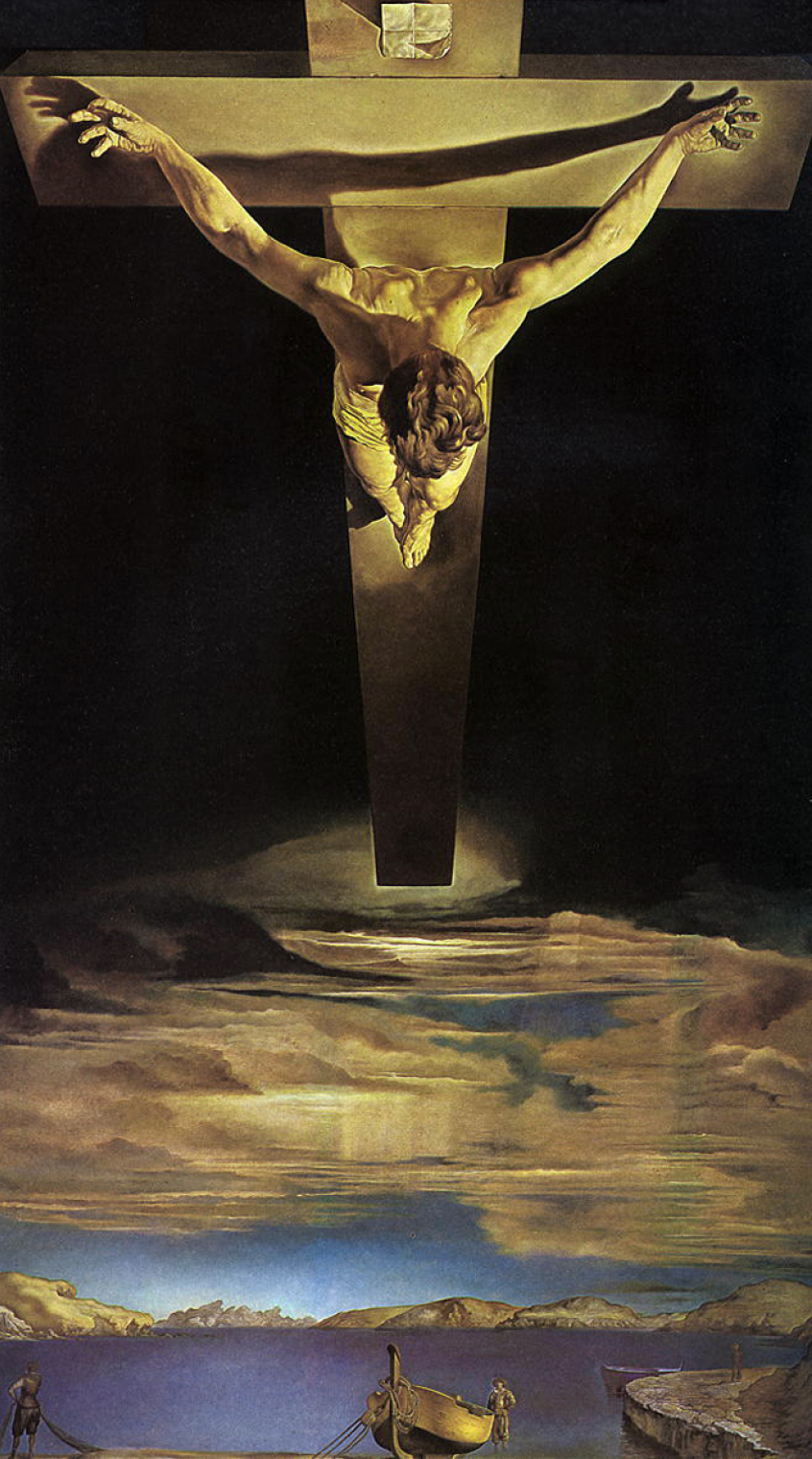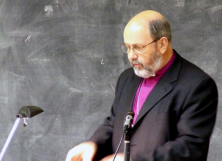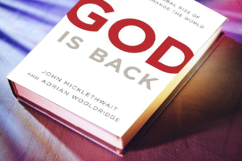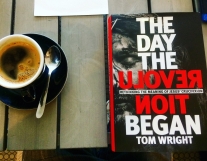
The Daily Mail reports that trigger warnings will be attached to theology lectures at the University of Glasgow, in case depictions of the crucifixion are too difficult to deal with.
The piece claims that, "According to university documents, a lecture on Jesus and cinema sometimes 'contains graphic scenes of the crucifixion, and this is flagged up to students beforehand.'" It goes on to suggest that this is part of a growing trend at universities which is, "creating a generation of 'snowflake' students unable to cope with the harsh realities of the world".
So what's going on here and how should we respond?
First it's obvious that on both sides of the Atlantic, there have been instances of university students being 'protected' in a way that sets a dangerous precedent which threatens free speech.
Yet it's not automatically the case that just because a trigger warning is used it's automatically a bad thing. It's perfectly reasonable not to expect someone who has been the victim of a sexual assault to sit through a film featuring a sexual assault, for example. It's a matter of compassion for people who may struggle with things that the rest of us are able to read, view or discuss without harm.
So what of the crucifixion? Should it come with a trigger warning?
I suspect it probably should. Not because it's something I want to shield people from, but because it can be a gruesome thing to engage with.
Mel Gibson's film The Passion Of The Christ was probably the most graphic and realistic depiction of the crucifixion ever committed to mainstream cinema. It was given a 15 rating in the UK and an R rating in the US. Clearly there was an age under which it was felt inappropriate for children to watch it. This is, of course, right and proper.
In effect these ratings act as their own form of trigger warning. The rating not only bans people from under the correct age from watching the movie. They also offer a guide to adults as to whether the content of the film is something they are likely to struggle with themselves
For this reason, I decided not to watch The Passion Of The Christ, even though many of my fellow Christians did watch it. I don't think my decision was 'right' and theirs 'wrong' (or even vice versa). I preferred not to watch it because of the graphic violence, but others thought differently and found it a rewarding, even an inspiring piece of art. I do find other depictions of the cross very moving. I find Salvador Dali's Christ Of St John Of The Cross incredibly powerful. Ironically it is on display in Glasgow and owned by the city's council...
The cross, of course, is not supposed to be an easy or palatable thing to consider. Crucifixion was the Roman Empire's cruelest form of torture. It remains one of the most brutal and devastating forms of capital punishment ever devised. That ISIS has used crucifixion in the 21<sup>st century compounds our horror about their reign of terror. It's one thing to shoot an enemy dead, but to inflict the sheer awfulness of crucifixion upon someone is barbaric beyond belief.
I find crucifixion especially brutal because I have dislocated my shoulder on a number of occasions. There is a level of pain that accompanies this, along with a high level of anxiety that goes with the feeling of something being 'wrong'. When someone is crucified, their shoulders may dislocate before they suffocate – something I find incomprehensible.
We will never be able to fully comprehend the sheer horror of the crucifixion. Even if we could understand the astonishing physical pain, we would never comprehend what Jesus was going through in terms of the emotional pain of being separated from His Father.
Why then, as a Christian and someone who believes the crucifixion and resurrection of Jesus are the central events of human history, would I be happy for a trigger warning to be applied to those studying crucifixion at university?
It's simple really. It isn't the job of a secular university to preach about the cross. That's the job of the Church. As Paul says in 1 Corinthians 1 23-24, "We proclaim Christ crucified, a stumbling-block to Jews and foolishness to Gentiles,but to those who are the called, both Jews and Greeks, Christ the power of God and the wisdom of God."
In a secular university during the study of theology, I hope that students will come to realise that Jesus is worthy of more than study. I hope that their academic work will lead to worship. Yet, if someone doesn't want to engage with a certain graphic depiction of crucifixion in a lecture or film, they shouldn't be forced to endure it. They're more likely to have a negative view of Christianity if they're made to sit through something which makes them incredibly uncomfortable.
Paul describes the cross as a 'stumbling block' but I don't think he's suggesting that we should make people deeply uncomfortable to persuade them of the Christian message. The idea of the stumbling block is that some Jews couldn't conceive of their messiah dying the death of a pariah. They'd expected a great military ruler. Instead the cross showed a vulnerable God, brought low, before the victorious resurrection.
We, as Churches, should carry on preaching Christ and Him crucified, and do so in a way which shows how God Himself came down and endured such gratuitous pain and suffering for our sake.

















